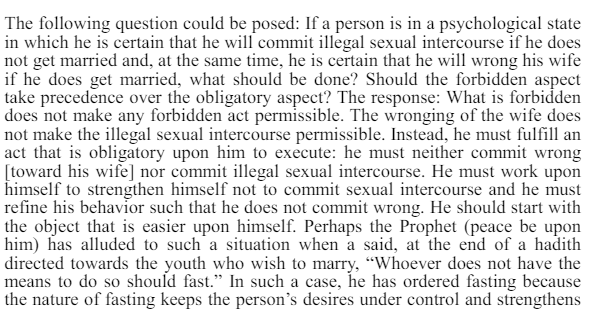While studying my fiqh subject for tomorrow's final, I read upon this
"..
And wanted to keep this post here for reminder untuk anak-anak bujang mama yang bakal jadi suami nanti. Be just! Berdosa kalau tak do just to your wife.. and to be just is not easy! It's just being fair or just fulfilling obligations... it's more than one can think of!
Get it prepared before you are thinking of getting married. Will be able to be just to my wife? Will I even able to be just myself?
...
Nah sharing direct verses in the Quran about marriage
Get it prepared before you are thinking of getting married. Will be able to be just to my wife? Will I even able to be just myself?
...
Nah sharing direct verses in the Quran about marriage
The Quran discusses marriage in several verses, providing guidance and principles for marital relationships. Here are some of the key verses that directly address marriage:
Surah An-Nisa (4:1): This verse emphasizes the importance of family ties and the creation of spouses from a single soul.
"O mankind, fear your Lord, who created you from one soul and created from it its mate and dispersed from both of them many men and women. And fear Allah, through whom you ask one another, and the wombs. Indeed, Allah is ever, over you, an Observer."
Surah An-Nisa (4:3): This verse discusses the permissibility and conditions of polygamy.
"And if you fear that you will not deal justly with the orphan girls, then marry those that please you of [other] women, two or three or four. But if you fear that you will not be just, then [marry only] one or those your right hand possesses. That is more suitable that you may not incline [to injustice]."
Surah Ar-Rum (30:21): This verse highlights the purpose and beauty of marriage.
"And of His signs is that He created for you from yourselves mates that you may find tranquility in them; and He placed between you affection and mercy. Indeed in that are signs for a people who give thought."
Surah An-Nur (24:32): This verse encourages marriage and assures that Allah will provide for those who marry.
"And marry the unmarried among you and the righteous among your male slaves and female slaves. If they should be poor, Allah will enrich them from His bounty. And Allah is all-Encompassing and Knowing."
Surah Al-Baqarah (2:221): This verse advises against marrying polytheists.
"And do not marry polytheistic women until they believe. And a believing slave woman is better than a polytheist, even though she might please you. And do not marry polytheistic men [to your women] until they believe. And a believing slave is better than a polytheist, even though he might please you. Those invite [you] to the Fire, but Allah invites to Paradise and to forgiveness, by His permission. And He makes clear His verses to the people that perhaps they may remember."
Surah Al-Baqarah (2:232): This verse addresses the issue of divorced women and their rights to remarry.
"And when you divorce women and they have [nearly] fulfilled their term, do not prevent them from remarrying their [former] husbands if they agree among themselves on an acceptable basis. That is instructed to whoever of you believes in Allah and the Last Day. That is better for you and purer, and Allah knows and you know not."
These verses provide a framework for understanding the Islamic perspective on marriage, emphasizing the importance of justice, mercy, affection, and the mutual rights and responsibilities of spouses.

